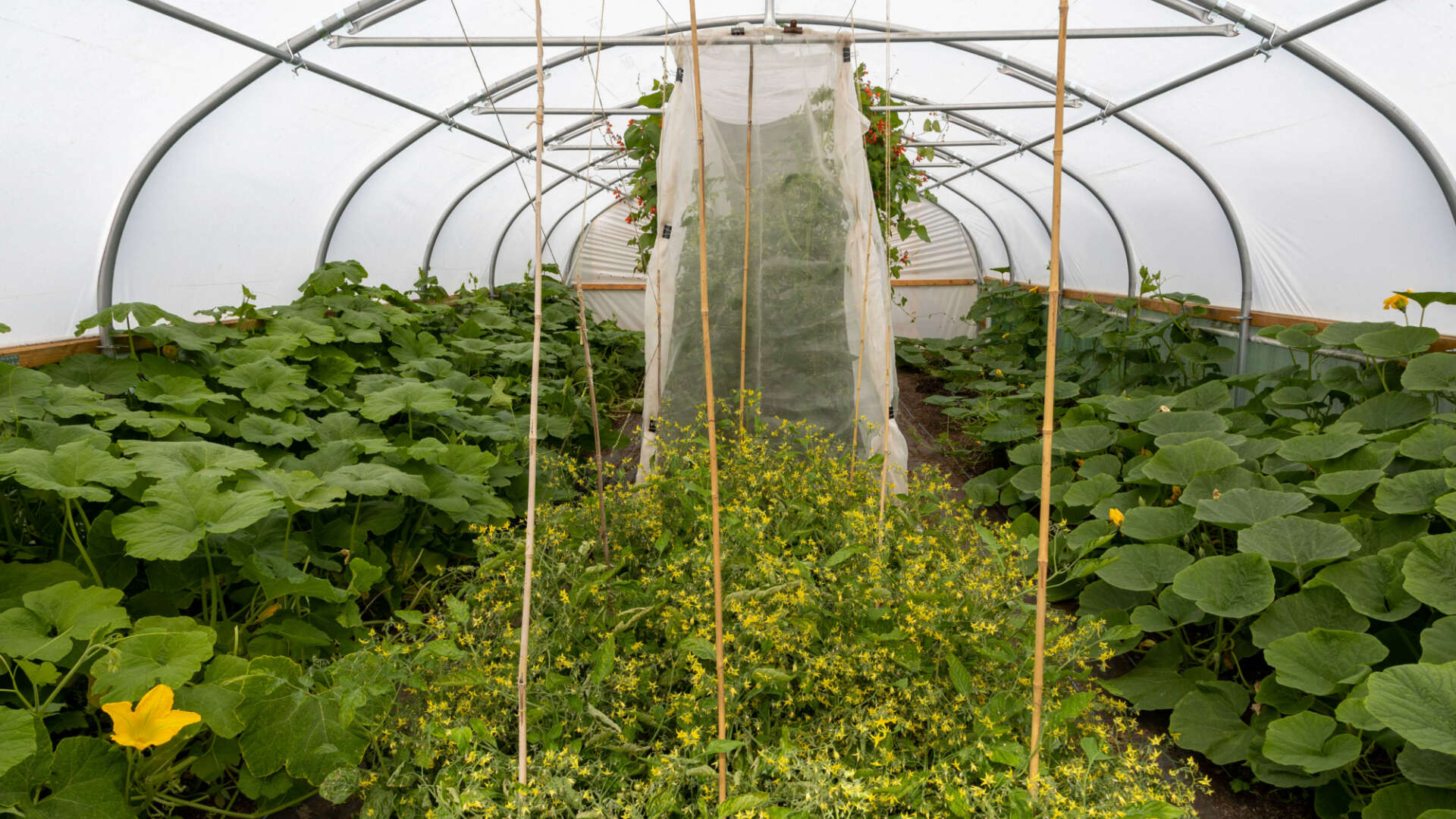Bringing heritage varieties "back from the brink"

This year at Ryton, we are trialling four re-discovered heritage varieties to check for health, cross-pollination, and description. We are now at the stage where we can take measurements and images to evaluate their progress. These include:
- Dwarf French Bean Minivert
Our donor passed us this variety on behalf of the breeder and bean expert Colin Leakey, Fellow of the Institute of Biology at Kings College, Cambridge. Colin's work began in Uganda, challenged to find a more digestible bean for mothers to feed their babies; his work there was brought to an end by Idi Amin's coup. It has been a life's work (one definitely worth looking up!) and this bean is one of those from his extensive breeding programmes. A purified breeding line was selected to create a novel, small-seeded green dry bean.
- Tomato Cal Ace
Removed from commercial production in 2011, this tomato produces large smooth 8 oz flattened globes, many over 1 lb. Described as meaty and sweet, and ripens uniformly. Believed to demonstrate some resistance to Fusarium Wilt, Verticillium Wilt and Alternaria Stem Canker.
- Tomato Costoluto Genovese
The Costoluto Genovese tomato is a classic Italian heirloom tomato variety. It is a heavily ribbed beefsteak shape and a type typical of early nineteenth-century tomato varieties. The aromatic fruit is described as fruity and acidic.
- Tomato Yellow Phillips
Thought to have been brought to the UK in the 19th century by Master Mariner Thomas Elliott (1828-1887). Thomas settled in Portland, Dorset, and continued to cultivate the tomato in his glasshouses there. Grown by our donor, Mr. Phillips, his father, and his grandfather before them, it produces sweet yellow fruits with soft skin.
Once secured in the library, these will be maintained as a living collection, supported by our Seed Guardians, and eventually shared with our members when we have sufficient seed. Each conserved variety helps counter the continuing decline in biodiversity and builds resilience in our food system as an open-pollinated seed.
If you are interested in supporting our trials – Please help by making a donation here to assist us with the cover costs of materials such as compost or if you would like to sponsor an entire trial, then please get in touch with our fundraising team via email: [email protected]